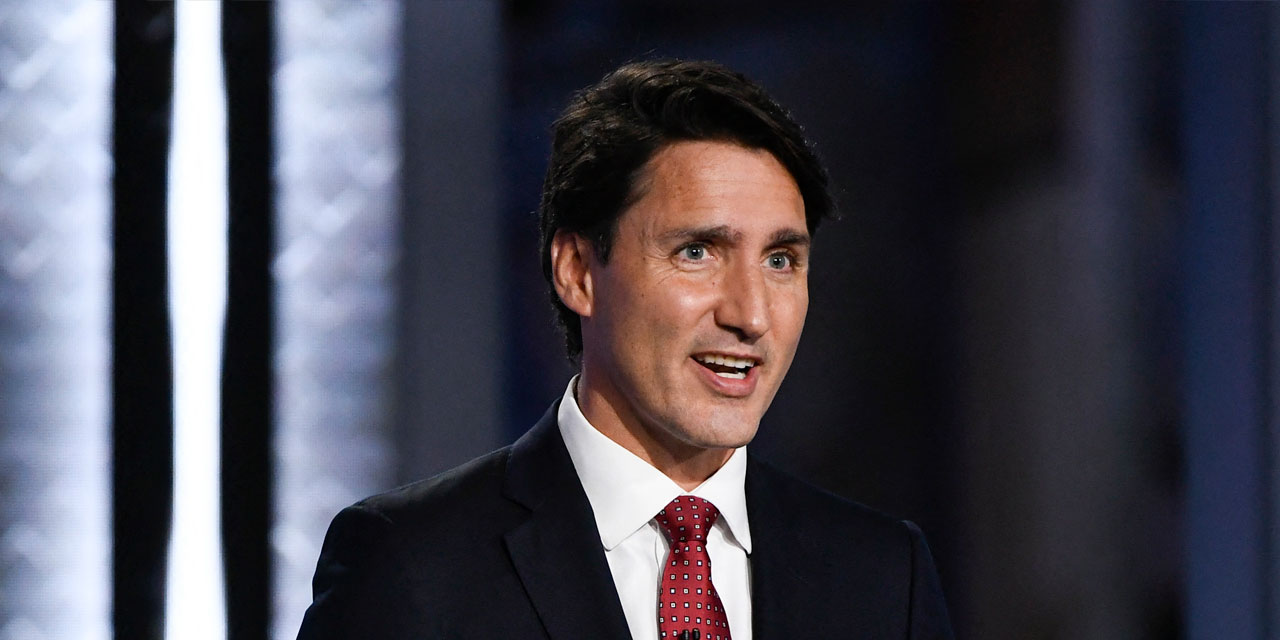Around this time last year, Canadian prime minister Justin Trudeau vowed to prioritize managing a pandemic over calling for a politically opportunistic election to bolster his party’s power in Parliament. “I do not want an election,” he said. “I think Canadians want politicians to work together to serve them, to build a better future for them and keep them safe during this crisis.” But that was then. Last month, Trudeau called for a snap federal election in an attempt to gain an outright majority for the Liberal Party, betting that the public will reward him for his handling of Covid-19.
The election may turn out to be a blessing in disguise for his opponents. Trudeau has made economically disastrous decisions, pushing Canada’s debt above the $1 trillion mark and its budget deficit to an unprecedented $340 billion (the previous record was $55 billion). In his six years in office, Trudeau has added more to the Canadian debt than all previous prime ministers combined.
But for many of his critics, the biggest threat Trudeau poses is to free speech. Part of his new Liberal platform is a promise to “combat serious forms of harmful online content,” which, given his and his party’s recent track record, has managed to raise alarms with both Big Tech and free-speech advocates. In May, he introduced Bill C-10, which aims to regulate content distributed by media streaming services and social platforms such as YouTube, Facebook, and Netflix under the Canadian Radio-Television and Telecommunications Commission (CRTC). In July, the Liberals proposed creating a new bureaucratic organization called the Digital Safety Commissioner of Canada, empowered to police the vague parameters of “hate speech” and “terrorist content.”
The Liberals have also introduced Bill C-36, which seeks to revive Section 13 of the Canadian Human Rights Act eight years after Parliament repealed it for being too vague. (It prohibited online speech “likely to expose a person or persons to hatred or contempt.”) Critics of the bill include left-wing scholar Noam Chomsky, who called it “outrageous.” Under the law, hate speech would be defined as “communication that expresses detestation or vilification of an individual or group of individuals on the basis of a prohibited ground of discrimination.”
The irony of such a provision is that in recent days Trudeau himself has taken to vilifying a group of individuals on the basis of their medical status: the unvaccinated. He has also threatened the jobs of every unvaccinated federal employee, as well as those who work for federally regulated industries. Rather than compassionately encouraging those hesitant to get vaccinated, he has elected to score cheap political points with his base by disparaging them. It’s unseemly to hear Trudeau—who in recent memory repeatedly and tearfully pleaded for public forgiveness—utter words like: “If you make a personal choice to not get vaccinated, then I will have no sympathy for you when you come to me and say ‘Oh but I can’t go out to a restaurant with my friends’ or ‘I’m not being allowed to go the gym.’”
Trudeau’s turn to sweeping vaccine restrictions makes a stark contrast with his January pledge to respect personal choice and not to mandate the vaccine. (He stated that vaccine passports would have “divisive impacts on community and country.”). More recently, he has vowed to mandate vaccines for federal civil servants and those traveling by train and plane; threatened “consequences” for those who opt out of the vaccine; guaranteed legal protection for businesses that discriminate based on vaccination status; and launched a C$1 billion fund to encourage provinces to implement intrusive proof-of-vaccination systems.
On Monday, Canadians will render judgment on this record. Polls show the Liberals and Conservatives in a statistical dead heat, and the latest figures suggest that the early vote has increased by almost 20 percent from the last election. Could this be a sign that voters are eager to punish Trudeau?
Photo by JUSTIN TANG/POOL/AFP via Getty Images
